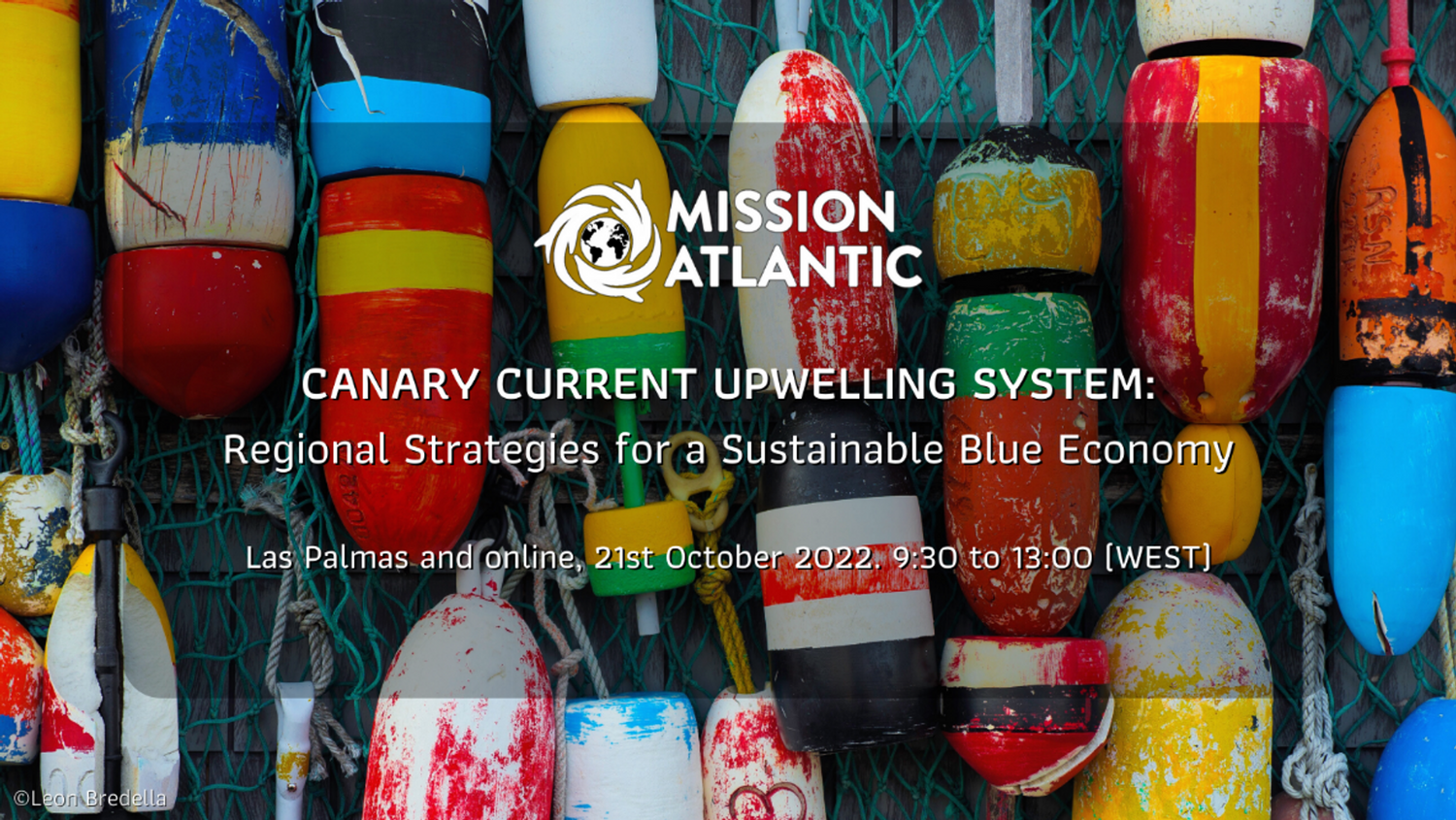21 Oct 2022 - 21 Oct 2022
DATE: 21st October
TIME: 9:30 to 13.00pm (WEST)
VENUE: PLATAFORMA OCEANICA DE CANARIAS (PLOCAN), Carretera de Taliarte s/n 35200. Telde Gran Canaria, Spain.
JOIN THE MEETING: This hybrid event will be streamed online. Click here to join!
The EU H2020-funded MISSION ATLANTIC project is pleased to announce its policy event "Canary Current Upwelling System: Regional Strategies for a Sustainable Blue Economy".
The Atlantic Ocean provides goods and services supporting human health and well-being on a global scale, with a central role in the Earth system. Hence, critical changes in ocean and ecosystem dynamics can have detrimental consequences on regional, national and global economies. The recent IPBES assessment on the use of wild species estimates that more than 30% of wild marine fish stocks are overfished and unsustainable fisheries can cause damage to the marine environment in multiple dimensions, often leading to cascading effects on local economies. The report also suggests that robust governance and collaborative efforts have been effective to support the sustainable management of wild species. New governance and collaborative models are useful to manage a number of challenges faced by the region, for example in the context of a growing interest in accelerating activities across blue economy sectors (e.g. sustainable tourism and aquaculture, green shipping, and access to marine sources of energy).
It is then essential to develop knowledge of the status, drivers, and dynamics of the Atlantic marine ecosystems, supporting appropriate regional management actions that can improve the sustainability of the use of marine resources and the protection of the global ocean commons. Also, a clear understanding of the challenges for marine ecosystems is to be assessed to ensure sustainable planning of the development of marine and maritime-based activities (i.e. a sustainable blue economy).
Knowledge, data, and observations, from different sectors and users of the sea, should be integrated into a system approach able to identify indicators of ecosystem state, and their changes over time and space, and to deliver an assessment of risks and vulnerabilities of the regional socio-ecological systems under multiple pressures and future scenarios. These can serve as a basis for a thorough analysis of the fragility of the marine ecosystems and strong planning of maritime activities (e.g. towards ICZM/MSP).
This policy event aims to discuss this system approach in the context of an Integrated Ecosystem Assessment of the Canary Upwelling system. This region is subject to major changes including ocean warming and acidification, pollution, an increase in marine extreme events, and major threats linked to biodiversity loss. The presence of multiple users (countries, organisations, other stakeholders, including clusters and business associations) and economic sectors (fishery, aquaculture, tourism, offshore activities, etc.) characterise the region, posing challenges and opportunities for new governance models on the use of the sea.
The policy event will discuss challenges and synergies to develop a common Blue Economy strategy in the Canary Current Upwelling system with representatives from governmental organisations of the bordering countries, the World Bank, IPBES, innovators and industry stakeholders.
This policy event includes presentations (8 x 10 minutes) followed by a Round Table discussion with specific topics introduced (5 minutes) and a Q&A session.
For more information, please see the full agenda here!
